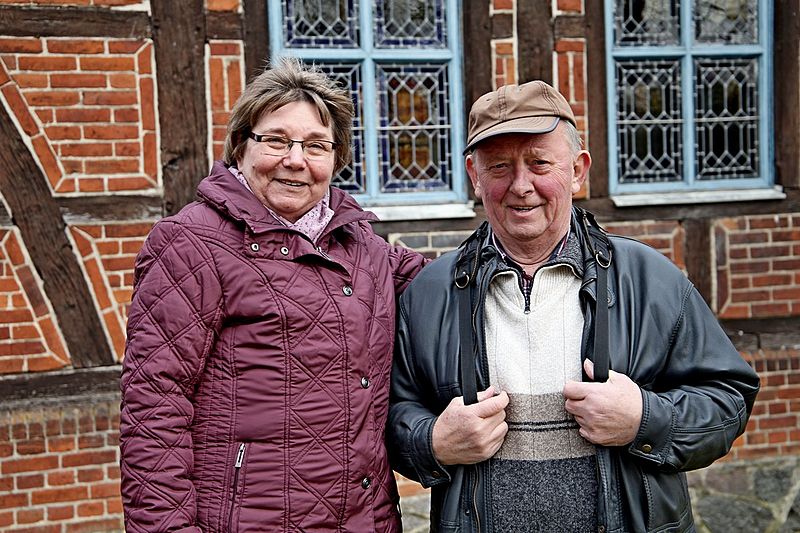私たちは苦難と希望が混ざり合った世界に住んでいるが、結婚を取り戻すための材料は与えられている。私の友人や同僚の言葉を借りれば、「すべてを修復するには遅すぎるが、何かを修復するのに遅すぎることはない」。
[toggle]In this hard-but-hopeful space that we currently inhabit, the raw materials for reviving marriage are there for the taking. “It’s too late to repair everything,” a friend and colleague of mine wisely reminds me. “But it’s not too late to repair something.” [/toggle]欧米では世俗化が進むことによって結婚が避けられるようになったが、その修復の鍵となるのは信仰だろう。しかし、欧米の教会が結婚の守護者の役割を果たすとき、教会内外の人々にそのことをどう伝え、結婚を奨励できるだろうか。
[toggle]Since the secularization of the West feeds on and sustains the flight from marriage, the life of faith is key. But if the church becomes marriage’s primary defender in the West, how exactly do we protect and encourage it for those inside and outside our sanctuaries? [/toggle]まず、結婚を援助するための社会的条件を研究して整えていく必要がある。その試みの一つに、超教派での取り組みがある。
[toggle]First, we have to study and foster the social conditions that help enable marriage. That includes the role of parachurch organizations. [/toggle]これまで教会で結婚を奨励する牧師たちの努力について耳にすることはあっても、頼りになる情報源はなかった。しかし、この点についても教会は頼りになる。インタビューをした人(特に米国)には、「出会い系サイト(できればキリスト教系)を利用している」と答えた人が多かったが、パートナーの紹介に関しては、コンピューターより人間のほうが優れている(仲人は、多くの人をきちんと「知っている」からだ)。効率的に人と出会い、恋をし、結婚し、幸せを得るには、活気のある(教会のような)サブ・コミュニティーは最も有効だ。
[toggle]While I occasionally heard about pastoral efforts to encourage more marriages in congregations, I heard no consistent sources of success. Faith-based groups, however, were a different story. Our interviewees (especially in the US) reported widespread use of dating sites, with a preference for Christian ones, but human rather than algorithmic matchmakers were far more appreciated. (Real matchmakers “know” more people.) In terms of satisfaction with an efficient process by which interviewees met, fell in love, and married, vibrant subcommunities fared best. [/toggle]教会によっては、人数が多すぎることも多い。とはいえ、スモール・グループは小さすぎるし、うまくいかなかった時のリスクも大きい。その中くらいがちょうどいいだろう。しっかりした教会では、世間とは異なる文化が育ちやすいこともあり、それに惹(ひ)かれる若者は多い。結婚年齢の平均値が上がるにつれて、こういった中規模の教会にいる青年層は、結婚の行方(ゆくえ)を占う重要な層となる。
[toggle]Congregations are often too big. Small groups feel too small and their dynamics too fragile. Midsize organizations, to borrow from Goldilocks, are just right. They attract young adults because of their distinctively Christian and sometimes countercultural nature. As the age of marriage rises, these midsized, post-college groups become more important for marital fortunes. [/toggle]クラクフに住むパーウェ・マルタ夫婦は、「結婚する前後に、二つのカトリック団体から支援を受けた」と語った。まず、二人の出会いの場となった近隣のドミニコ会青年組織。もう一つは、ネオ・カテクメナートゥス(通称ネオカテ)だ。ネオカテは、カトリック教会が作る50人足らずのコミュニティーで、インタビューしたポーランドやレバノン、スペインの若者の話にも出てきた。米国の若者からは、インターバーシティー(日本のKGK)やバプテスト学生ミニストリーのような大学組織の話が出た。
[toggle]Pawe and Marta, the married couple from Krakow, said two Catholic societies aided their marriage both before and after the wedding. One was a youth organization at the nearby Dominican order where they met, and the other was the Neocatechumenal Way, a movement of church-based communities of up to 50 people that was mentioned by interviewees in Poland, Lebanon, and Spain. Stateside, we heard about college organizations like InterVarsity and the Baptist Student Ministry. [/toggle]
言い方を換えれば、彼ら彼女らが孤独ではなく信仰に目を向けた時に出会いが生まれる可能性は高まったのだ。あまり面白みのない話かもしれないが、C・S・ルイスもこう言っている。「天国を目指せば、地球も手に入る」
もちろん、信仰的であれば誰でも結婚できるわけではない(男女比の課題もある)。それでも、まず自らの生活を信仰に根づかせることは、結婚のチャンスが生まれる良い土壌になると言えるだろう。
[toggle]In other words, meeting a mate seemed more likely to occur—or be on its way soon—when our interviewees focused on holiness before loneliness. That may sound simple and unoriginal, but remember C. S. Lewis’s remark: “Aim at heaven, and you’ll get earth ‘thrown in.’ ” Of course, not everyone who aims high finds marriage waiting in the wings. (Sex-ratio disparities remain a persistent challenge.) Nonetheless, orienting yourself first toward faith and discipleship seems to offer more fruitful ground for marriage to take root. [/toggle]自らを高め、ほかの人の体験から学ぶことも大事だ。話を聞いたあるロシア人は、「失敗例から学ぶことは、結婚のワクチン接種のような価値がある」と言う。反対に、好例は人々の良い刺激となる。
[toggle]The seeds of matrimony sprout, too, through personal modeling and storytelling. As one Russian interviewee remarked, bad examples serve as “a sort of vaccine against marriage.” By contrast, good examples inspire the next generation. [/toggle]もちろん、そこには限界もある。好例があったからといって、それを真似するだけで成功が生まれるとは限らないからだ。結婚して家庭を始めることは今も変わらず伝統的なものだが、それについてさまざまな捉え方をする人はいる。私たちは、その慣習を現代の手法を通じて改良することができるのではないだろうか。
[toggle]This tool has limits, of course. We can’t re-brand or repackage marriage with the right narrative and expect to find our efforts successful. Getting married and starting a family are traditional moves, no matter how you frame them. But reinforcing that tradition through public practice is within reach for many of us. [/toggle]
(写真:Mehlauge)
2カ月後に結婚を控えているスクール・カウンセラーのトーマス(メキシコのグアダラハラ、34歳)も同じように考えている。「親がどんな結婚生活を送っているかは大きな影響力を持ちます。両親が本当に愛ある良好な関係を持っていれば、子どもたちも『自分も両親のような関係性を作りたい』と思えると思います」
[toggle]Tomas, a 34-year-old school counselor from Guadalajara who is getting married in two months, brought this message home. “How parents live their marriage will make a strong impression,” he said. “And I imagine that if the relationship is sweet, if there is really love, I think that generates enthusiasm in a young person to say, ‘I want something like my parents have.’ ” [/toggle]最後に、理想的な結婚や結婚への過度な期待について考えたい。ルイスの言った「天国を目指す」という発想を結婚に当てはめると、結婚の基本的な性質を思い出すきっかけになるだろう。一方それは、現代の人々が結婚に対して異常なまでに高い心理的・物質的な理想を持つことへの警告ともなる。
結婚はあくまでも地上の取り決めであり、復活後の「神の国」には関係ないものだと私たちの主は言われる(「復活の時には、めとることも嫁ぐこともない」マタイ22:30)。それは、物質的繁栄や霊的成長のためのツールであり、自己犠牲の愛や、神が人となる愛を実践する機会を日々与えてくれるものだ。
[toggle]Finally, we have to avoid the pitfall of idolizing or over-idealizing marriage. If we borrow Lewis’s “aim at heaven” concept and bend it toward marriage, it reminds us of the foundational nature of matrimony and warns us against the out-of-this-world material and psychological expectations about marriage that have gone stratospheric today. Marriage is an earthly arrangement, one that our Lord noted will not be found in the post-resurrection kingdom of God (Matt. 22:30). It’s a tool for material flourishing and a vehicle for spiritual progress that provides daily (if not hourly) opportunities to exhibit sacrificial, incarnational love. [/toggle]今日の西洋は、夫や妻、そして親として人々が長年払ってきた無数の犠牲の上に成り立っている。私たちは、責任ある結婚生活が健全な社会を作る鍵となることを知っている。
しかし、「配偶者や子どもなどの家族を超えた、世界に対する肉体的(そして霊的)な恵みの行為」が結婚であるという事実を私たちは見失ってしまった。欧米の成功は、この家族単位の社会構造に基づいて構築されており、それを失うことは、想像以上に私たちの社会を脆弱(ぜいじゃく)で無気力なものにさせるだろう。
[toggle]By now, the West is living off the fumes of countless sacrifices that husbands and wives, mothers and fathers have been making for many decades. We know that those committed marriages are key to a healthy society. But we’ve lost sight of the fact that marriage is in many ways a corporeal (and spiritual) act of mercy not just to our own spouse and children but to the world beyond our household. The West’s successes have been built upon this family social structure, and dismantling it will leave us far more vulnerable and psychologically unmoored than we realize. [/toggle]今、教会が「結婚とは何か」を世界に再び示す時が来たと私は見ている。私たちが結婚を奨励する理由は、時代的なものでも世俗的なものでもない。取るべき方法は地味なものかもしれないが、うまくいく可能性もある。
[toggle]From my vantage point, then, it’s past time for the church to re-demonstrate to the world what marriage is. We have on our side a timeless and transcendent motivation for matrimony. The task is not a glamorous one. But it just might work. [/toggle]執筆者のマーク・レグネルスは、テキサス大学オースティン校の社会学教授であり、オースティン家族文化研究所の共同創設者。彼の新書『キリスト教的結婚の未来』(オックスフォード大学出版局)は9月1日に出版される予定。
本記事は「クリスチャニティー・トゥデイ」(米国)より翻訳、転載しました。翻訳にあたって、多少の省略をしています。

